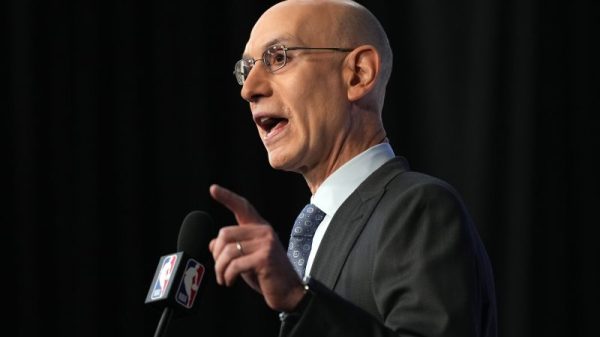In a year filled with voter anger toward Washington, Reps. Tom Cole and Gerry Connolly seemed to be perfect targets for stiff primary challenges from their respective right and left ideological flanks.
In late April, Cole (R-Okla.) became chair of the House Appropriations Committee, in charge of doling out more than $1.7 trillion to federal agencies. As far as conservative activists worried about big government spending are concerned, he’s cast just about every bad vote for higher spending in the past decade. And he spent the previous 16 months working out of a literally smoke-filled back room in the Capitol.
Connolly (D-Va.) has been in elected politics for almost 30 years, representing increasingly diverse Fairfax County, where some younger, antiestablishment liberals scored recent wins in local races.
Yet on Tuesday, Cole, 75, handily dispatched his challenger — a businessman who spent nearly $6 million trying to defeat the 22-year incumbent — by nearly 40 percentage points. And Connolly, 74, thumped a primary opponent who focused on the incumbent’s longtime support for Israel by a more than 6-to-1 margin, getting more than 85 percent of the vote.
“Incumbents are reasserting their strength,” Connolly said in an interview after his resounding victory.
This incumbent strength is one of the odder trends in this seemingly anti-Washington environment.
Both President Biden and ex-president Donald Trump are disliked by a majority of Americans. Barely 1 in 5 voters are satisfied with the direction of the nation. Last month just 13 percent of voters approved of the job Congress is doing, according to Gallup, the 11th straight month that measure came in below 20 percent.
And yet, with almost 30 states having held their congressional primary elections, just one lawmaker, Rep. Bob Good (R-Va.), has found himself in serious trouble. He trails his opponent by about 300 votes after Tuesday’s primary, and election officials are still counting and might do a full recount.
Two self-proclaimed House progressives are facing a backlash from pro-Israel challengers, Democrats Jamaal Bowman (N.Y.) and Cori Bush (Mo.), with Bowman’s primary coming up on Tuesday and Bush’s in early August. But Bowman, Bush and Good are hardly establishment figures.
All three ran four years ago as ideologically charged antiestablishment candidates. They toppled incumbents close to party leadership, only to now face their own primary challengers who are closely aligned with the establishment.
Rep. William Timmons (R-S.C.) dodged a close call from a hard-right challenger earlier this month, winning by more than 2,000 votes, and Rep. Tony Gonzales (R-Tex.) had an initial 20-point edge in the March primary but only narrowly won a very low-turnout runoff in late May.
Almost every other incumbent has won by a fairly comfortable margin, defying recent times of primary turmoil.
At this stage of the 2020 campaign, four incumbents had already been toppled by primary challengers. All told, eight lawmakers — five Republicans and three Democrats — lost their nomination fights in 2020. Two years ago, seven incumbents were toppled by primary challengers.
And in 2018, four challengers knocked off incumbents, most prominently Alexandria Ocasio-Cortez (D-N.Y.), who defeated a 20-year veteran, Rep. Joseph Crowley (D), and became an instant political star.
This data does not include when an incumbent loses to another incumbent because redistricting has thrown them into the same seat.
To be sure, some firebrands have pulled off primary victories this season, but those wins have exclusively come in seats left open by a retiring lawmaker.
Lawmakers offered a broad range of explanations for the lack of primary outrage. The first reason is that these incumbents have seen too many of their colleagues get caught politically asleep, as Crowley was in 2018 and Rep. Eric Cantor (R-Va.) was in 2014.
As a result, most incumbents are now running better, more professional primary campaigns than they would have six years ago. Lawmakers in both parties also noted that congressional funding for the wars in the Gaza Strip and Ukraine did not seem to be political liabilities for incumbents.
There’s little sign of Democratic primary voters ousting incumbents who supported aid for Israel, despite the numerous pro-Palestinian protests this spring. And GOP incumbents who voted for the national security package in April, including more than $60 billion for Ukraine, have faced little repercussion in their primaries.
But Republicans and Democrats also point to another dimension of voter unrest: They’re mostly upset about what the other party is doing to block their grand policy dreams, not the actions of their local member of Congress.
“They want to do everything. And with the options of do nothing, do something, or do everything, both sides seemed to be focused on do everything,” Sen. James Lankford (R-Okla.), an ally of Cole, said in an interview. “And I think that’s the bigger frustration that I hear. They’re mad that the other side’s not letting them do everything, but not necessarily mad at their representative for that.”
Connolly rattled off several factors explaining the anxiety among his voters: Trump’s possible return to the White House, Supreme Court rulings on abortion and gun rights, the House GOP’s chaos.
“People are more anxious than angry,” Connolly said, noting that their passion is focused on Republicans, not an eight-term Democratic incumbent. “Anxiety describes my electorate, not anger.”
Incumbents can channel that anger or anxiety among their primary voters by promising to fight the other side on the biggest issues.
“I won’t go along with them, because I’m fighting for you,” Connolly said, suggesting a motto for any incumbent. “Look at Nancy Mace.”
Mace (R-S.C.) has moved all over the ideological map in her two terms in the House. After she joined seven GOP colleagues in voting to oust Kevin McCarthy (R-Calif.) as House speaker in October, he helped fund a serious challenge to Mace.
Despite her ideological inconsistency, she has always given the image of someone battling the other side. And it helped that, in her latest iteration, Mace has emerged as a strong Trump supporter, helping her win his endorsement. She won her primary by 27 percentage points.
On the GOP side, Trump has been a much more benevolent force than in years past, mostly endorsing incumbents or just staying out of their way. Two years ago, Trump went on a retribution tour, helping defeat four GOP incumbents who voted to impeach him after he encouraged the attack on the Capitol on Jan. 6, 2021.
If Good does lose, it will likely be because Trump — angry over his initial endorsement of Gov. Ron DeSantis (R-Fla.) in the presidential race — linked arms with McCarthy and the establishment in trying to oust Good.
Members have also learned that they need to have visibility in their district, getting home for town halls and civic events where they can talk about the local funding they have delivered through the reinstated earmark process.
“Folks that are doing well across the country are those that show up and listen, they’re in the community. They’re chatting with people, they’re talking to people. They’re listening to people,” said Sen. Ben Ray Luján (D-N.M.), who while in the House ran the 2018 campaign that channeled anti-Trump energy into a Democratic majority.
Cole’s image in the Capitol is as old school as they come. From January 2023 to late April, he chaired the Rules Committee, which comes with a corner office on the third floor of the Capitol. He regularly hosted lawmakers for cigars and drinks in his back room, the smell at times wafting through the hallways outside his office.
But back home, Cole is known as the most powerful Native American in Congress, a proud member of the Chickasaw Nation of Oklahoma who touted his shift to leading the Appropriations Committee as a historic moment for tribal country.
“I mean, he’s very Oklahoma-centric in how he works for the state and how he focuses in on the issues. So he knows a lot of people, a lot of people trust him,” Lankford said.
Cole left nothing to chance. He raised and spent more than $3 million, with more than a third of that going to media advertising. He spent nearly $90,000 on polling and for a firm to run a door-knocking operation.
Friends and big donors set up a super PAC that went negative against his opponent, running ads accusing him of being a Texan trying to buy his seat.
Connolly ran a similarly aggressive campaign. He spent more than $1 million, including funds to do detailed polling in February. A clear majority of his Democratic voters wanted a cease-fire in Gaza, but the issue ranked very low in terms of overall importance.
So, while his opponent had a liberal position on Gaza, Connolly punched away at his out-of-step views on policing and abortion rights.
The Connolly campaign’s field operatives knocked on about 32,000 doors ahead of the primary — about 42,000 votes were cast — and discovered that he was still popular, particularly from his almost 14 years on the county Board of Supervisors.
When the actual votes came in Tuesday night, Connolly realized that his campaign had made a statement.
“We decided we wanted a decisive win,” he said.



























